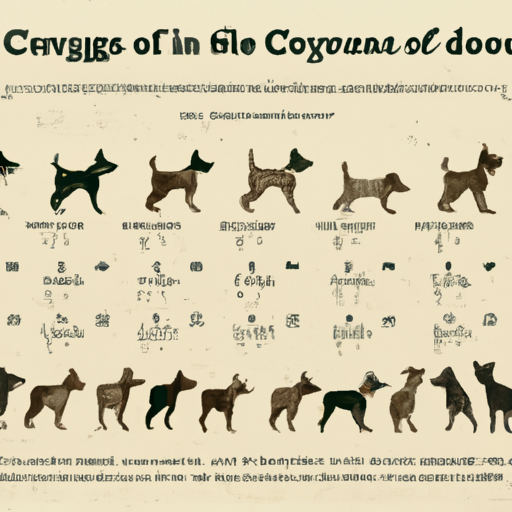As a caregiver, understanding your beloved pet’s age can provide you with critical insights into their health, behavior, and needs. In this article, we explore the ins and outs of dog years, debunking common myths and providing solid, scientific information to help you care for your canine companion.
1. Understanding The Concept of ‘Dog Years’
The age-old adage that one human year equates to seven dog years is a good starting point, but it’s overly simplistic and doesn’t accurately reflect a dog’s aging process.
Contrary to popular belief, dogs don’t age at a uniform rate. In fact, their age varies depending on their size and breed. For example, a one-year-old Great Dane is physically much older than a one-year-old Chihuahua.
2. The Science Behind Dogs Aging
Scientists have found a method to compare human and dog years more accurately. They based their study on “epigenetic changes,” which are modifications to DNA that turn genes ‘on’ or ‘off.’ As creatures age, these changes accrue and can be used to gauge biological age.
The formula for dog age in human years is: 16 ln(dog age) + 31.
| Dog’s Actual Age (Years) | Age in Human Years (Approximate) |
|---|---|
| 1 | 31 |
| 2 | 53 |
| 3 | 65 |
| 4 | 73 |
| 5 | 78 |
| 10 | 94 |
3. Factors Affecting Dogs Aging Process
Several factors can influence how quickly a dog ages:
- Breed: Larger breeds tend to age faster than smaller ones.
- Nutrition: A balanced diet can contribute to a dog’s overall health and longevity.
- Exercise: Regular physical activity can help keep a dog in good shape and delay the aging process.
- Healthcare: Regular check-ups and preventative care can catch potential problems early and extend a dog’s lifespan.
4. Caring for Your Dog at Different Life Stages
Your dog’s needs will change as they age, and understanding their “human age” can help you provide the best care.
- Puppy (0-1 year): This is a time of rapid growth and development. Puppies need plenty of good-quality food and socialization, as well as vaccinations and regular vet check-ups.
- Adult (1-7 years): Adult dogs need regular exercise, a balanced diet, and preventative healthcare.
- Senior (7+ years): Senior dogs may require a special diet, more frequent vet visits, and adjustments to their exercise routine.
5. The Emotional Aspects of Dogs Aging
As a caregiver, dealing with your dog’s aging process can be emotionally challenging. It’s important to be patient and understanding. Remember, they may not have the energy they once had, but they still possess a lifetime of love and loyalty to give. Cherish the time you have with them, and make their golden years as comfortable and fulfilling as possible.
Frequently Asked Questions
Q: How can I tell my dog’s age in human years?
A: You can use the formula 16 ln(dog age) + 31. However, do remember that the formula is more accurate for dogs aged one year and older.
Q: Why do large dogs age faster than small dogs?
A: Large dogs grow faster than small dogs, which leads to a shorter lifespan. The exact reasons for this are still not entirely understood by scientists.
Q: Can I slow down my dog’s aging process?
A: While you can’t stop your dog from aging, a healthy lifestyle (balanced diet, regular exercise, preventative healthcare) can help your dog stay in good shape for as long as possible.
Q: How should I care for my senior dog?
A: Senior dogs may need a special diet, more frequent vet visits, and adjustments to their exercise routine. It’s also important to watch for signs of age-related diseases such as arthritis or dementia.
Q: How can I emotionally cope with my dog’s aging?
A: It’s normal to feel sad or anxious about your dog aging. You can cope by focusing on providing the best possible care for your dog and cherishing the time you have together. Remember, every stage of a dog’s life is special and rewarding in its own way.



